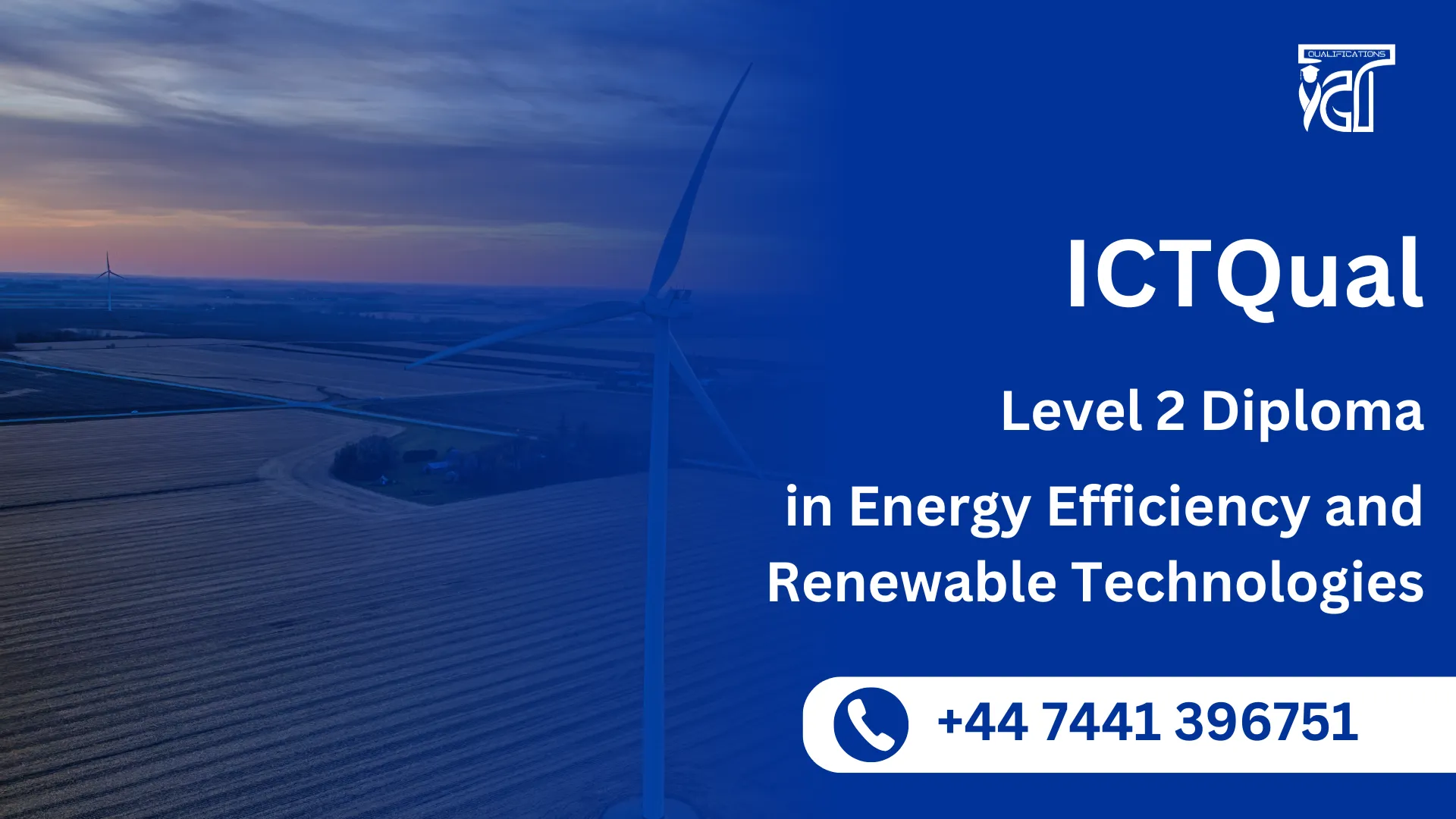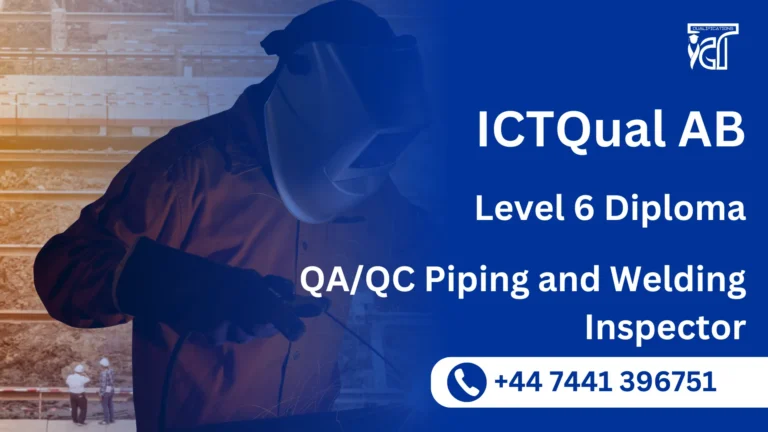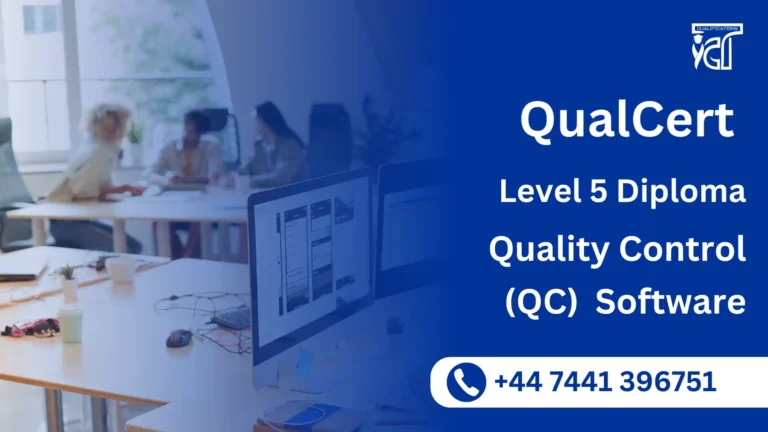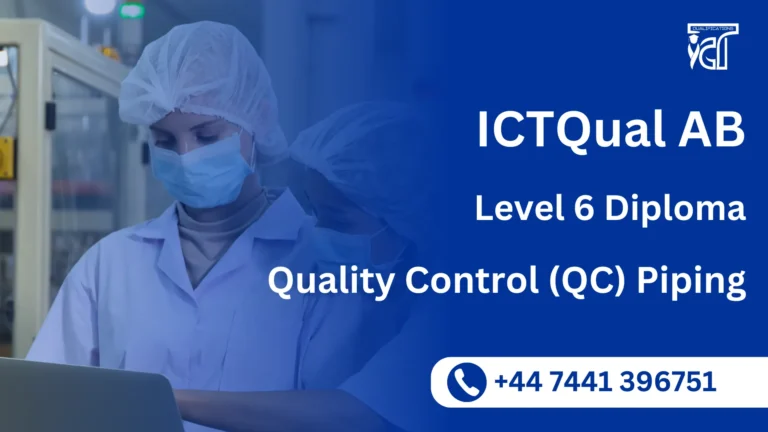As the world increasingly shifts toward more sustainable and eco-friendly practices, the need for skilled professionals in energy efficiency and renewable technologies has never been greater. If you’re looking to kick-start or advance your career in this dynamic and rewarding field, the ICTQual Level 2 Diploma in Energy Efficiency and Renewable Technologies is the ideal qualification for you. Fully Ofqual regulated, this accredited diploma provides the skills and knowledge needed to thrive in the energy sector, focusing on renewable technologies and energy-saving techniques.
The ICTQual Level 2 Diploma in Energy Efficiency and Renewable Technologies is an accredited qualification aimed at providing learners with essential skills in the areas of energy efficiency and renewable energy technologies. This course is designed for individuals who are either starting their careers in the energy sector or looking to gain formal qualifications in renewable energy and sustainability practices.
This Ofqual-regulated qualification ensures that the content and certification meet rigorous national standards, giving you the confidence that the skills you acquire will be recognized across the UK and internationally.
The ICTQual Level 2 Diploma in Energy Efficiency and Renewable Technologies covers key areas of energy management, energy audits, and renewable energy systems. As the global focus on sustainability continues to grow, having a robust understanding of these areas is crucial for anyone looking to make a meaningful contribution to energy-saving efforts.
The ICTQual Level 2 Diploma in Energy Efficiency and Renewable Technologies is a valuable qualification for anyone looking to make a positive impact on energy conservation and sustainability. Whether you are starting your career or seeking to enhance your existing skills, this Ofqual-regulated qualification will equip you with the necessary knowledge and practical experience to thrive in the renewable energy sector.
With its focus on real-world application, global recognition, and future career progression, the ICTQual Level 2 Diploma is your gateway to a successful and rewarding career in energy efficiency and renewable technologies. Start your journey toward a greener future today!
ICTQual Level 2 Diploma in Energy Efficiency and Renewable Technologies
This qualification, the ICTQual Level 2 Diploma in Energy Efficiency and Renewable Technologies, consists of 10 mandatory units.
| Sr# | Unit Title |
|---|---|
| 1 | Introduction to Energy Management |
| 2 | Renewable Energy Sources |
| 3 | Energy Efficiency Measures |
| 4 | Energy Storage and Distribution |
| 5 | Sector-Specific Applications |
| 6 | Policy and Financial Incentives |
| 7 | Health, Safety, and Environmental Considerations |
| 8 | Emerging Technologies and Trends |
| 9 | Project-Based Learning |
| 10 | Industry Visits and Guest Lectures |
GLH (Guided Learning Hours) and TQT (Total Qualification Time) are terms commonly used in vocational qualifications to help define the amount of time a learner is expected to spend on their studies.
1. GLH (Guided Learning Hours)
GLH refers to the number of hours a learner spends being directly taught, supervised, or supported during their course. This includes the time spent in activities such as:
- Classroom instruction
- Practical workshops
- One-on-one tutoring or mentoring sessions
- Online learning sessions with tutor support
In other words, GLH represents the time that learners are actively engaged with their instructors or learning activities.
2. TQT (Total Qualification Time)
TQT represents the total amount of time a learner is expected to invest in completing a qualification, including:
- GLH (Guided Learning Hours): Time spent on direct learning, as explained above.
- Self-Directed Learning: This includes time spent on independent study, research, assignment completion, preparation for exams, and any other work the learner does outside of direct teaching hours.
TQT is a broader measure that includes all the time required to achieve the qualification. It helps learners and employers understand the overall commitment required for the qualification.
Key Differences Between GLH and TQT:
- GLH focuses on direct learning with guidance or supervision.
- TQT includes GLH as well as independent study time and other learning-related activities.
Example:
If a qualification has a TQT of 600 hours and a GLH of 250 hours, it means the learner should spend 250 hours in direct learning (classroom, online, or tutor-led sessions) and 350 hours on independent study or research.
Here are the learning outcomes for each study unit:
- Introduction to Energy Management
- Understand and apply energy auditing techniques for different industries
- Analyse case studies of energy management in small, medium, and large enterprises
- Use energy monitoring tools effectively to track and analyse energy consumption
- Develop practical energy management solutions for real-world scenarios
- Demonstrate an understanding of the role of energy management in sustainability
- Renewable Energy Sources
- Students will be able to understand, install, and maintain solar PV systems in various settings and analyse their applications in agriculture and urban areas.
- Students will be able to understand the basics of small-scale wind turbine installation and maintenance and evaluate their applications in rural and offshore settings.
- Students will be able to understand the practical applications of micro-hydro-power systems and biomass energy in rural industries and evaluate their role in food processing and waste management.
- Energy Efficiency Measures
- Students will be able to apply practical retrofitting techniques to improve energy efficiency in residential and commercial buildings.
- Students will be able to analyse energy efficient building designs in different climates and their impact on energy consumption.
- Students will be able to identify energy waste in manufacturing processes and recommend energy-efficient practices.
- Students will be able to evaluate energy efficient practices in industries such as textiles automotive, and food processing.
- Students will be able to implement practical strategies for fleet management and fuel efficiency.
- Students will be able to evaluate the role of electric vehicles (EVs) in public transport and logistics.
- Energy Storage and Distribution
- Demonstrate knowledge of battery storage systems for renewable energy systems.
- Install and maintain battery storage systems for renewable energy applications.
- Analyse the role of battery storage in remote areas and urban micro grids.
- Understand grid-tied renewable energy systems and their integration.
- Evaluate grid stability and renewable energy integration in different countries.
- Apply hands-on skills to design and analyse grid tied renewable energy systems.
- Sector-Specific Applications
- Understand the practical applications of renewable energy technologies in agriculture.
- Analyse the challenges and opportunities of implementing renewable energy in agriculture.
- Understand the importance of energy efficiency in healthcare facilities.
- Evaluate the role of renewable energy in improving healthcare access in remote areas.
- Understand practical energy-saving measures in the hospitality industry.
- Evaluate the role of green certification and renewable energy in sustainable tourism.
- Understand the role of energy-efficient machinery and process optimization in manufacturing.
- Evaluate strategies for reducing the carbon footprint in heavy industries.
- Policy and Financial Incentives
- Understand how to access government grants, subsidies, and loans for renewable energy projects.
- Analyse case studies of successful renewable energy projects funded b incentives.
- Develop a practical understanding of carbon credits and their application in different industries.
- Apply knowledge of carbon trading and offsetting to real-world scenarios.
- Health, Safety, and Environmental Considerations
- Demonstrate safe installation and maintenance practices for renewable energy systems.
- Conduct environmental impact assessments (EIAs) for renewable energy projects.
- Analyse and mitigate risks in renewable energy projects through case studies.
- Promote sustainable water and energy use in agriculture.
- Apply health, safety, and environmental (HSE) standards to renewable energy projects.
- Emerging Technologies and Trends
- Understand the principles and applications of hydrogen energy.
- Understand the principles and applications of geothermal energy.
- Understand the principles and applications of wave and tidal energy.
- Analyse case studies of pilot projects and real-world applications of emerging technologies.
- Evaluate the role of emerging technologies in the global energy transition.
- Project-Based Learning
- Design and implement a small-scale renewable energy system (e.g., solar PV or wind).
- Conduct an energy audit for a local business or household.
- Develop an energy efficiency plan for a specific industry.
- Collaborate effectively in a team to complete project-based tasks.
- Apply critical thinking and problem-solving skills to real-world energy challenges.
- Communicate project outcomes effectively to diverse audiences.
- Industry Visits and Guest Lectures
- Understand the operational principles and technologies used in renewable energy installations.
- Gain insights into industry practices and trends in energy management and renewable technologies.
- Develop practical skills through hands-on exposure to renewable energy installations.
- Enhance communication and professional skills through interactions with industry experts.
Benefits of the ICTQual Level 2 Diploma in Energy Efficiency and Renewable Technologies
The ICTQual Level 2 Diploma in Energy Efficiency and Renewable Technologies offers a wide range of benefits for individuals looking to pursue a career in the energy sector, particularly in areas focused on energy conservation and the implementation of renewable energy technologies. Below are the key benefits of this course:
1. Ofqual-Regulated Qualification
- As an Ofqual-regulated qualification, the ICTQual Level 2 Diploma meets national standards, ensuring that your credentials are recognized and respected in the UK and internationally.
- This formal recognition gives you a competitive edge in the job market and ensures that your knowledge and skills are up to industry standards.
2. Industry-Relevant Skills
- The course provides practical and up-to-date skills needed to succeed in the rapidly evolving renewable energy sector.
- You’ll gain a deep understanding of energy efficiency practices, energy audits, and renewable technologies, making you highly valuable to employers in the energy and sustainability fields.
3. Increased Employability
- As demand for energy efficiency and renewable energy professionals continues to rise, completing this qualification enhances your employability and opens up a wide range of career opportunities.
- Positions you for roles such as energy auditor, renewable energy technician, energy efficiency consultant, and other green energy-focused careers.
4. Career Advancement
- For those already working in the energy or environmental sectors, this qualification offers the potential for career progression into roles that focus on energy management, sustainability consulting, and renewable technology installations.
- It also opens up opportunities for higher-level qualifications, allowing you to specialize further in energy efficiency and renewable energy systems.
5. Hands-On, Practical Learning
- The diploma emphasizes hands-on learning, giving you practical experience in performing energy audits, recommending renewable technologies, and implementing energy-saving solutions.
- This practical exposure equips you with real-world knowledge that you can immediately apply in your job.
6. Focus on Sustainability
- With growing concerns about climate change, this course allows you to play a direct role in reducing carbon emissions and promoting sustainability.
- By learning about renewable energy sources like solar, wind, and other sustainable technologies, you become part of the global movement towards a more sustainable future.
7. Wide Career Opportunities
- With the energy sector expanding globally, there are a variety of roles available in energy efficiency, renewable energy, and sustainability. This diploma provides the foundational knowledge to step into roles that make a difference in tackling energy consumption and environmental impact.
8. Global Recognition
- Since the qualification is recognized both in the UK and internationally, it provides flexibility if you wish to pursue work opportunities in different countries.
9. Cost-Effective Training
- The course provides affordable training while still offering in-depth learning in key areas like energy audits and renewable technologies.
10. Contribute to Environmental Protection
- By completing this qualification, you can actively contribute to reducing environmental damage and promoting greener, cleaner alternatives to traditional energy systems.
11. Networking and Industry Connections
- As you undertake the qualification, you’ll have access to industry events, online platforms, and other networking opportunities where you can connect with experts and potential employers in the renewable energy sector.
12. Practical Application of Learning
- The course encourages a hands-on approach to learning with case studies, practical projects, and simulations, ensuring that you are well-prepared for real-world challenges in energy efficiency and renewable energy systems.
Best Fit for the ICTQual Level 2 Diploma in Energy Efficiency and Renewable Technologies
The ICTQual Level 2 Diploma in Energy Efficiency and Renewable Technologies is ideal for individuals who are eager to enter the renewable energy sector or those looking to gain valuable skills in energy management and sustainable practices. Below are the key groups that would benefit from this course:
1. Aspiring Energy Professionals
- Individuals looking to start a career in the renewable energy sector will find this diploma an excellent starting point. Whether you are interested in energy audits, renewable energy installations, or energy efficiency consulting, this course will provide you with the foundational knowledge and practical skills required in these roles.
2. Existing Professionals in the Energy Sector
- If you are already working in an energy-related field, such as electricians, technicians, or energy advisors, this diploma will help you expand your expertise in energy efficiency and renewable energy technologies. It provides an opportunity for career advancement and professional development by adding value to your existing skillset.
3. Environmentally Conscious Individuals
- Individuals passionate about sustainability and environmental protection will benefit from the course’s focus on reducing energy consumption and utilizing renewable energy sources. If you’re committed to reducing carbon footprints and contributing to a sustainable future, this qualification aligns perfectly with your career goals.
4. Those Interested in Green Jobs and Sustainability
- The course is perfect for individuals seeking to enter the green energy jobs market, which is rapidly expanding as industries, governments, and organizations focus on sustainable practices. This diploma helps equip you with the skills to meet the growing demand for professionals in energy management and sustainable technologies.
5. Individuals Seeking Practical, Hands-On Learning
- If you prefer practical learning with a direct application of skills, the ICTQual Level 2 Diploma offers hands-on experiences in energy auditing and renewable energy system installations. This is perfect for those who want to develop skills they can immediately apply in the field.
6. Career Changers
- For those looking to transition into a career in renewable energy, this diploma offers a structured and accessible entry point. Whether you’re coming from an unrelated industry or have basic technical knowledge, the course offers comprehensive training to help you shift into energy-related roles.
7. Individuals Seeking an Ofqual-Regulated Qualification
- If you’re looking for an Ofqual-regulated qualification, which is recognized both in the UK and internationally, this course is a great choice. It meets national standards and is highly regarded by employers within the renewable energy sector, giving you credibility and a competitive edge.
8. Students or Recent Graduates
- If you are a recent school leaver or a student looking to specialize in the growing field of renewable energy, this diploma provides a strong foundation to help you enter the job market with relevant skills. It’s also an excellent way to gain industry-recognized qualifications.
Entry Requirements
Register Now
Qualification Process
Qualification Process for the ICTQual Level 2 Diploma in Energy Efficiency and Renewable Technologies
Certification:
Upon successful completion of all checks, ICTQUAL AB will issue your official certificate, confirming that you have attained the ICTQual Level 2 Diploma in Energy Efficiency and Renewable Technologies.
Self-Assessment:
Begin by evaluating your eligibility to ensure you meet the qualification requirements, including work experience, knowledge, and language proficiency.
Registration:
Complete your registration by submitting the required documents, including a scanned copy of a valid ID, and paying the registration fee.
Induction:
An assessor will conduct an induction to confirm your eligibility for the course and explain the evidence requirements. If you do not meet the criteria, your registration will be canceled, and the fee will be refunded.
Assignmnets & Evidence Submission:
Provide all assignmnets and the necessary evidence based on the assessment criteria outlined in the course. If you are unsure of the required evidence, consult with the assessor for guidance on the type and nature of evidence needed.
Feedback and Revision:
The assessor will review your submitted evidence and provide feedback. Evidence that meets the criteria will be marked as “Criteria Met,” while any gaps will be identified. You will be asked to revise and resubmit if needed.
Competence Evidence:
Submit final evidence demonstrating that all learning outcomes have been met. This evidence will be marked as “Criteria Met” by the assessor once it is satisfactory.
Internal Quality Assurance (IQA):
The Internal Quality Assurance Verifier (IQA) will review your evidence to ensure consistency, quality, and compliance with standards.
External Verification:
The IQA will submit your portfolio to ICTQUAL AB External Quality Assurance Verifiers (EQA) for final confirmation. The EQA may contact you directly to verify the authenticity of your evidence.







